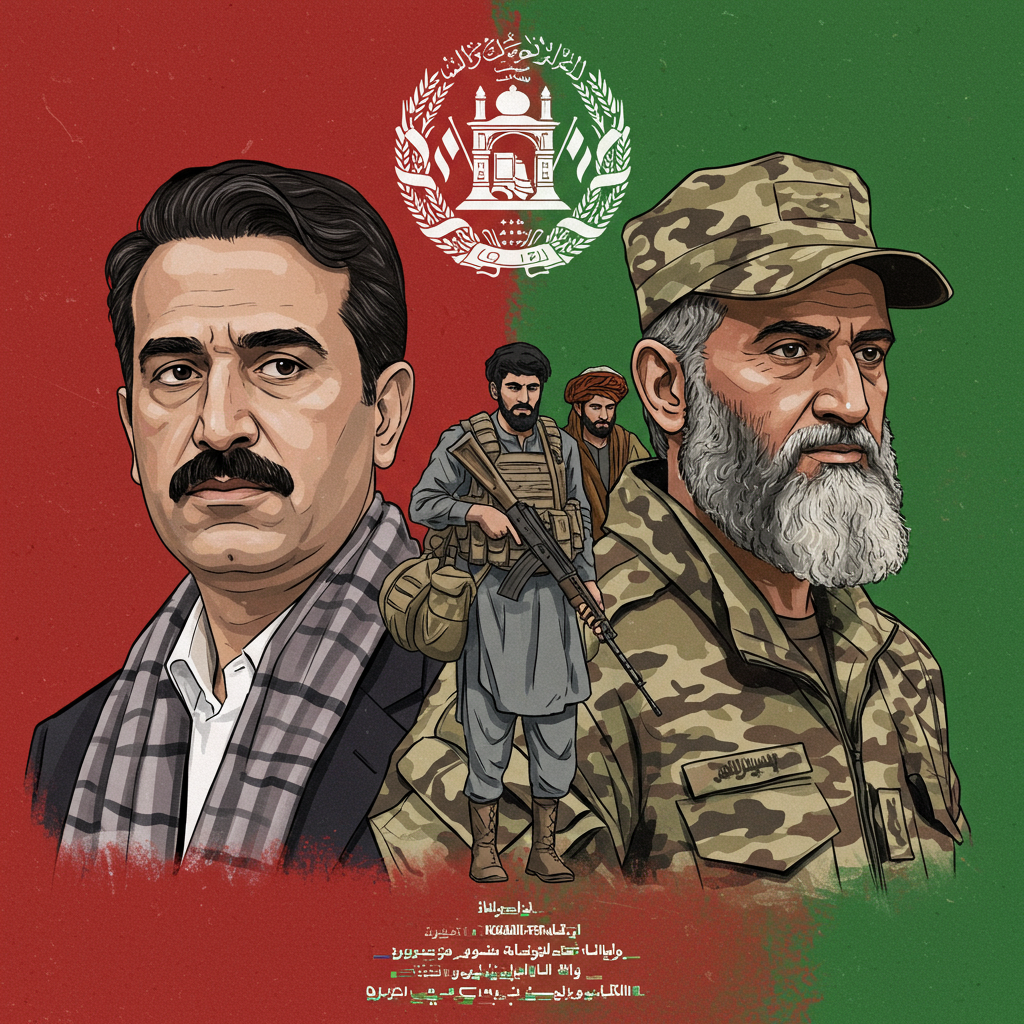In a landmark step addressing grave human rights abuses, the International Criminal Court (ICC) has issued arrest warrants for two top leaders of Afghanistan’s taliban regime. The court, based in The Hague, announced the warrants on Tuesday, July 8, 2025. They accuse Supreme Leader Haibatullah Akhundzada and Chief Justice Abdul Hakim Haqqani of committing the crime against humanity of persecution.
This significant legal action targets the systematic targeting of specific groups within Afghanistan since the Taliban seized control in August 2021. The ICC judges found compelling evidence, indicating “reasonable grounds” to believe these senior figures bear criminal responsibility. Their actions are alleged to have deliberately and systematically deprived vast numbers of Afghan people of their fundamental rights and freedoms.
Historic Charges Target Widespread Persecution
The warrants center on the crime against humanity of persecution, as defined under international law. ICC judges detailed that the Taliban’s decrees and edicts, while imposing broad restrictions, have specifically and disproportionately targeted individuals based on their gender and perceived political alignment.
Crucially, the court’s findings extend beyond women and girls. The warrants explicitly include charges related to the persecution of “other persons non-conforming with the Taliban’s policy on gender, gender identity or expression.” This represents a historic moment, marking the first time the ICC has specifically named LGBTQI+ individuals as victims in a gender persecution case. The court also found that individuals perceived as “allies of girls and women” have faced persecution on political grounds. These alleged crimes occurred between August 15, 2021, and at least January 20, 2025. The court emphasized that gender persecution involves “systemic and institutionalised forms of harm,” including the enforcement of discriminatory societal norms.
The Staggering Restrictions on Women and Girls
Since taking power, the Taliban has implemented a relentless series of measures that have fundamentally dismantled the rights and freedoms of Afghan women and girls. These restrictions form a key basis for the ICC’s charges. They include:
Denial of Education: Banning girls over 12 from attending secondary school. An estimated 80 percent of Afghan school-age girls (around 2.5 million) are denied education, with 1.4 million deprived since the Taliban takeover.
Barring from Employment: Prohibiting women from working in most sectors, including for aid organizations.
Severe Movement Limits: Requiring women to have a male chaperone for travel over long distances.
Public Life Control: Issuing rules restricting women from raising their voices in public spaces.
Closure of Spaces: Closing beauty salons and preventing women from visiting public parks and gyms.
Impact on Privacy: Fundamentally undermining women’s rights to privacy and family life.
- Suppression of Freedoms: Restricting freedoms of movement, expression, thought, conscience, and religion.
- www.washingtonblade.com
- www.abc.net.au
- timesofindia.indiatimes.com
- halifax.citynews.ca
- www.agenzianova.com
The United Nations has previously warned that these accumulating restrictions could amount to “gender apartheid.” This highlights the systematic and pervasive nature of the discrimination faced by Afghan females.
Targeting LGBTQI+ Individuals and Allies
The ICC warrants shine a spotlight on the persecution of other vulnerable groups under Taliban rule. Charges specifically name those persecuted for not conforming to the Taliban’s strict gender identity or expression policies. This includes members of the LGBTQI+ community.
Reports, such as one by Outright International in 2023, detail systematic abuses against LGBTQI+ individuals. These abuses reportedly include physical and sexual assault, arbitrary detention, public floggings for alleged same-sex relations, and intelligence gathering on activists. The inclusion of these groups in the ICC warrants is seen as a crucial acknowledgement of their suffering. Individuals perceived as supporters or “allies” of women and girls have also faced persecution based on political grounds.
Taliban Regime Rejects Court’s Authority
The Taliban government quickly and strongly rejected the ICC’s arrest warrants. Zabihullah Mujahid, a spokesman for the regime, dismissed the warrants as “baseless rhetoric.” He asserted that the Taliban government does not recognize the jurisdiction or authority of the International Criminal Court.
The Taliban described the warrants as an “act of hostility” and an “insult to the beliefs of Muslims around the world.” They claim to respect women’s rights according to their interpretation of Afghan culture and Islamic law. Mujahid counter-claimed that the “Islamic Emirate” had established “unparalleled justice” rooted in Islamic Sharia in Afghanistan. He also criticized the ICC for allegedly failing to protect women and children in Gaza, suggesting a double standard. The Taliban’s foreign ministry had previously accused the ICC of ignoring alleged “war crimes and crimes against humanity” by foreign forces before 2021.
Global Reaction and Significant Enforcement Hurdles
The issuance of the warrants drew widespread welcome from international human rights organizations. Amnesty International hailed it as an “important development,” offering hope for Afghan women, girls, gender non-conforming individuals, and allies. They called it a “crucial step” toward accountability.
Human Rights Watch (HRW) also welcomed the decision. Their international justice director stated that senior Taliban leaders are now “wanted men.” HRW urged the international community to fully support the ICC and assist efforts to enforce the warrants. However, HRW also called for the ICC to investigate alleged perpetrators from other groups. This includes Islamic State of Khorasan Province (ISIS-K), former Afghan security forces, and US personnel. HRW argues that equal access to justice is necessary to break cycles of violence.
The Challenges of Arrest
Despite the symbolic and legal weight of the warrants, enforcing them presents enormous practical difficulties. The ICC does not have its own police force. It relies entirely on its member states to make arrests if individuals with warrants enter their territory.
Recent global events highlight the challenges of enforcing ICC warrants against powerful figures. Warrants against Israeli officials, for example, have raised questions about enforcement willingness among some Western ICC members. The United States is notably not an ICC member. It has historically sanctioned ICC officials involved in probes concerning US personnel. Given that Akhundzada and Haqqani are believed to remain within Afghanistan, under the Taliban’s control, their physical arrest seems highly unlikely in the near future. This would require a major shift in circumstances or international relations.
Background and ICC’s Path to Warrants
Supreme Leader Haibatullah Akhundzada became the Taliban’s leader in 2016. He has led the regime in Afghanistan since the withdrawal of US-led forces in August 2021. Akhundzada participated in Islamist groups fighting the Soviet military in the 1980s. Abdul Hakim Haqqani is considered a close associate of Taliban founder Mullah Omar. He was a lead negotiator for the Taliban in discussions with the US in 2020. He heads the Taliban’s Supreme Court.
The ICC investigates individuals for genocide, crimes against humanity, and war crimes. It steps in when national authorities are unable or unwilling to do so. The court’s involvement in Afghanistan has a complex history. In 2020, the previous ICC prosecutor received approval to investigate alleged offenses by Afghan government forces, the Taliban, and US personnel dating back to 2002. However, that probe was initially paused. This happened when the former Afghan government indicated it could handle domestic investigations.
Following the Taliban takeover, ICC judges approved Prosecutor Karim Khan’s request to reopen the investigation in 2022. They concluded that under Taliban rule, there was “no longer the prospect of genuine and effective domestic investigations.” Khan announced a focus on crimes by the Taliban and ISIS’s Afghan affiliate. He stated he would “deprioritize” other aspects, such as alleged crimes by Americans. The warrants for Akhundzada and Haqqani are a direct result of this reopened and focused investigation.
Frequently Asked Questions
What are the specific crimes and groups targeted by the ICC warrants against Taliban leaders?
The ICC issued warrants for two top Taliban leaders based on findings that they are responsible for the crime against humanity of persecution. This persecution targets several groups. It includes the systematic deprivation of rights for women and girls based on their gender. It also targets “other persons non-conforming with the Taliban’s policy on gender, gender identity or expression,” explicitly including members of the LGBTQI+ community. Additionally, individuals perceived as “allies of girls and women” have faced persecution on political grounds.
How does the International Criminal Court enforce arrest warrants like these, especially when leaders remain within a country?
The ICC lacks its own police or enforcement body. It depends entirely on its member states to carry out arrests. If an individual subject to an ICC warrant travels to a country that is an ICC member, that state is legally obligated to arrest them and transfer them to The Hague. However, enforcing warrants against leaders residing within a territory controlled by a non-cooperative entity like the Taliban is extremely challenging without the individual’s voluntary surrender or capture outside Afghanistan.
Why did the ICC decide to issue these warrants now, and what’s the significance of including gender-based persecution?
The ICC reopened its investigation into Afghanistan in 2022, concluding that genuine domestic investigations were not possible under the Taliban. Prosecutor Karim Khan subsequently prioritized crimes by the Taliban and ISIS-K. The decision to issue warrants now stems from that investigation, with judges finding “reasonable grounds” for the charges. The inclusion of gender-based persecution is highly significant. It marks the first time ICC judges have issued warrants specifically on this charge. It also notably includes LGBTQI+ individuals alongside women and girls as victims of persecution, recognizing their specific targeting by the Taliban regime.
Moving Towards Accountability
The issuance of ICC arrest warrants for Afghanistan’s supreme leader and chief justice sends a powerful international signal. It highlights the alleged systematic persecution of women, girls, and other groups under Taliban rule. While immediate arrest is improbable given the Taliban’s control and rejection of the court, the warrants place these leaders among a select group sought by global justice mechanisms. This development underscores the ongoing human rights crisis in Afghanistan. It also demonstrates the complex challenges of holding powerful individuals accountable under international law. The warrants signal the international community’s focus on the dire situation and its assertion that alleged crimes against humanity, particularly those based on gender and political alignment, will not be overlooked.




